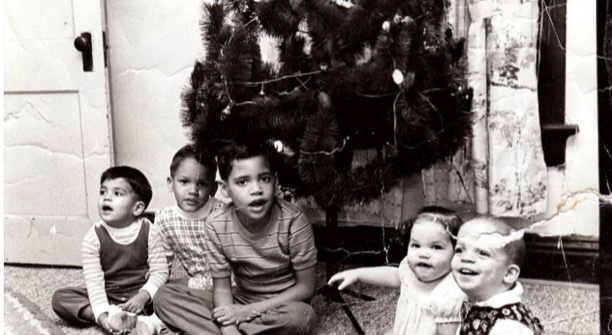“What are you?”

It’s a question that doesn’t faze Tim Hague anymore, after being adopted by two white parents but having a clearly darker complexion.
Hauge was born in 1964 in Texas after his mother, a 20-year-old white woman from Iowa, got pregnant by an older, married Black man.
“She came from a religious Christian home from a farm in Iowa, a very white community so that just wasn’t going to work out well back then,” Hague said.
“There were places back in the day for unwed, pregnant teenage girls who were sent to have their babies and put up for adoption.”

But Hague almost wasn’t given the chance to find an adoptive family.
“Right at birth they weren’t sure what to do with me because they hadn’t had many bi-racial babies, as we were called,” he said. “They made the decision early on (that) they were going to keep me at the home there and raise me there because they didn’t think they would be able to find anyone to adopt me.
“(My mom) found out and threw a fit — why that mattered I don’t know, but it did. So they attempted to find a home for me.”
Hauge was carted around to different churches, in hopes someone would adopt him. He eventually won the hearts of his parents in Kansas.
“They literally saw a judge and signed some papers,” he said.
“A couple of years later, the State of Kansas got wind that my parents were willing to adopt bi-racial babies and they had one they couldn’t get rid of, so along came my brother, David. A few years later, along comes my brother, Titus, and down the line to Daniel, Rebecca and James, the six of us.”
As Hague and his siblings were growing up, they slowly started realizing they were “different.”
“Here we are, six kids in a world that‘s very black and white in the day — this is the 60s, 70s and early 80s in the States and you were trying to figure out where you fit and you didn’t really fit in anywhere,” he said.
“Early, early, early you realized you didn’t quite fit. You didn’t quite fit into the white community and you didn’t fit into the Black community but there were times you fit in either and there were times it was OK, but oftentimes you were left quite unsure.”
- Posters promoting ‘Steal From Loblaws Day’ are circulating. How did we get here?
- Video shows Ontario police sharing Trudeau’s location with protester, investigation launched
- Canadian food banks are on the brink: ‘This is not a sustainable situation’
- Solar eclipse eye damage: More than 160 cases reported in Ontario, Quebec
Since Hague didn’t connect in the Black community, he’s taken it upon himself to learn more about his heritage, reading books on Black history.
Now, Hague lives in Winnipeg where he wrote a book titled Perseverance that dives into his first-place finish on Amazing Race Canada with his son, his diagnosis with Parkinson’s disease and his life growing up.
He says most people have connected with his reality TV and health anecdotes in his book, but he doesn’t shy away from having a conversation about race.
“We need to have these discussions. There are lots of us who feel out of place in one way or another. There are ways to find our place and be comfortable with who we are and comfortable in our own skin and break down some of these barriers we in society still have,” he said.






Comments